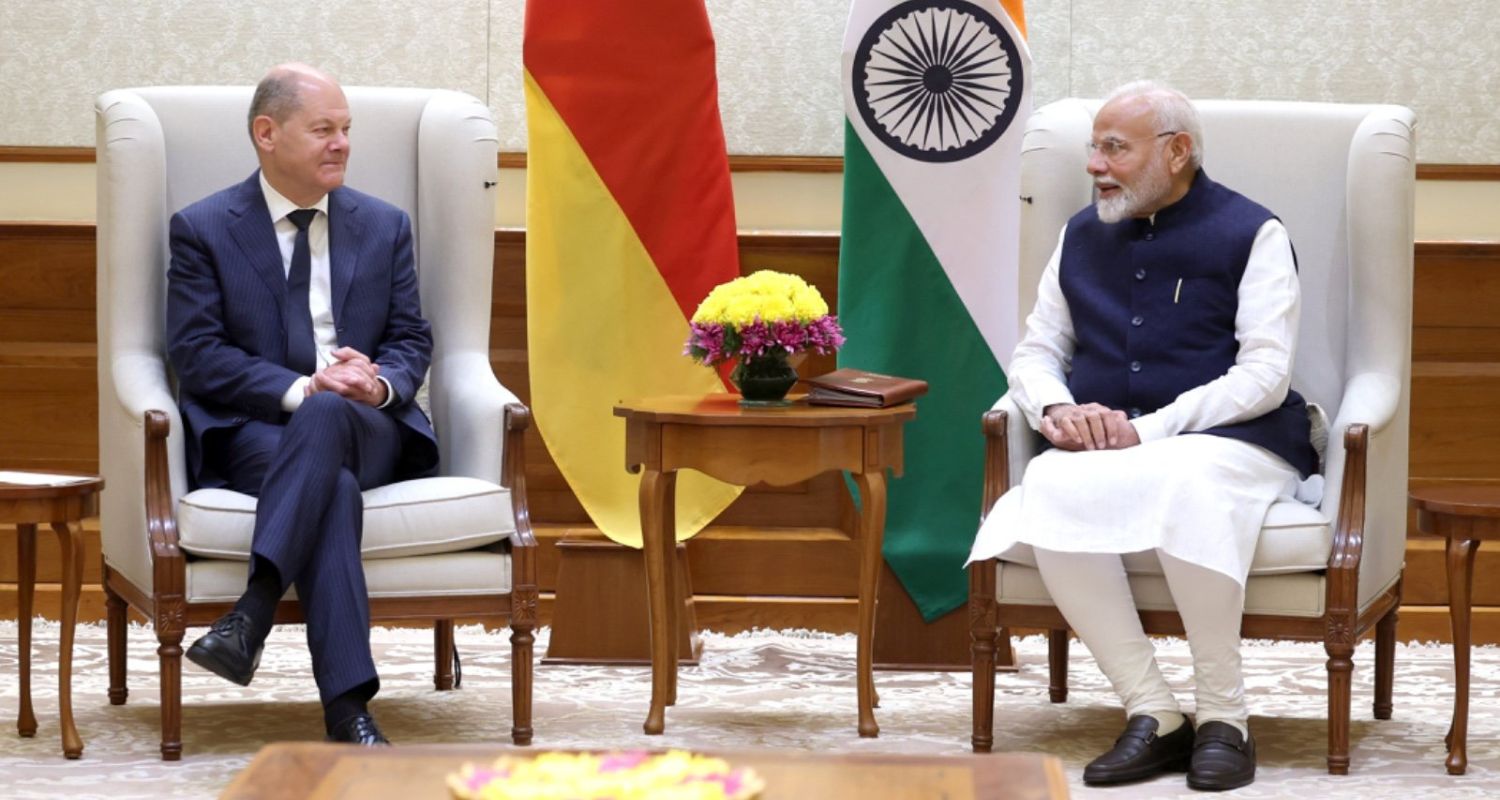German Chancellor Olaf Scholz arrived in India for a two-day state visit, where he met with Prime Minister Narendra Modi at the PM’s official residence in New Delhi.
The meeting marked the beginning of a series of high-level discussions between the two leaders, centering on enhancing cooperation in areas such as defence, trade, and clean energy. Later in the day, Modi and Scholz inaugurated the Asia-Pacific Conference of German Business 2024, signalling a stronger economic and strategic partnership between India and Germany.
The bilateral talks are expected to cover a broad spectrum, including security and defence cooperation, talent mobility, economic collaboration, and joint work on emerging technologies.
A key highlight will be the 7th Intergovernmental Consultations (IGC), a forum where ministers from both nations convene to discuss areas of collaboration and report directly to the heads of state.

The IGC framework, launched in 2011, is unique to Germany’s partnerships with only a few select countries, underscoring the importance of the India-Germany relationship.
At the Asia-Pacific Conference, which has drawn around 650 business leaders and CEOs from across the region, Scholz and Modi are expected to push for deeper trade and investment ties.
Held biennially, this conference is a platform for leaders from Germany and the Indo-Pacific region to explore business opportunities, enhancing economic relations between Germany and India.
Modi’s remarks at the conference underscored the deepening partnership between the two countries, noting that Germany’s commitment to expanding visas for skilled Indian workers is a positive step toward mutual growth.
The Germany-India relationship, strengthened by a Strategic Partnership since 2000, spans multiple domains, including defence, science and technology, investments, and higher education.
This year, both countries are celebrating 50 years of cooperation in science and technology, with collaborations in areas such as space research, AI, environmental sciences, and advanced materials. Scholz emphasised that this cooperative spirit is crucial for tackling global challenges and advancing sustainable development.
On the second day of his visit, Chancellor Scholz will travel to Goa, where the German naval frigate “Baden-Wuerttemberg” and the combat support ship “Frankfurt am Main” are scheduled to make a port call.
This event highlights Germany’s commitment to strengthening its Indo-Pacific presence and fostering maritime security cooperation with India. The naval exercises reflect the growing strategic and defence alignment between the two countries.
India and Germany have seen mutual trade reach over $30 billion, with German companies expanding their footprint in India and Indian businesses increasing their presence in Germany.
Germany’s recent “Focus on India” policy document, released by its Cabinet, outlines ways in which the two democracies can collaborate for global benefit. Modi welcomed this blueprint, which underscores Germany’s faith in India’s skilled workforce and sets a path for a deeper strategic partnership.
He expressed confidence that Germany’s plan to increase visas for skilled Indian workers, from 20,000 to 90,000 annually, would significantly contribute to Germany’s economic growth.
In his remarks, Modi reflected on the progress made over 25 years of the India-Germany strategic partnership and expressed optimism about the next quarter-century.
He emphasised that both countries are poised to play a critical role in global economic diversification, with India becoming a hub for manufacturing and trade. Highlighting India’s potential, Modi called on German businesses to invest more in India, framing the current moment as ideal for “Make in India, Make for the World.”



